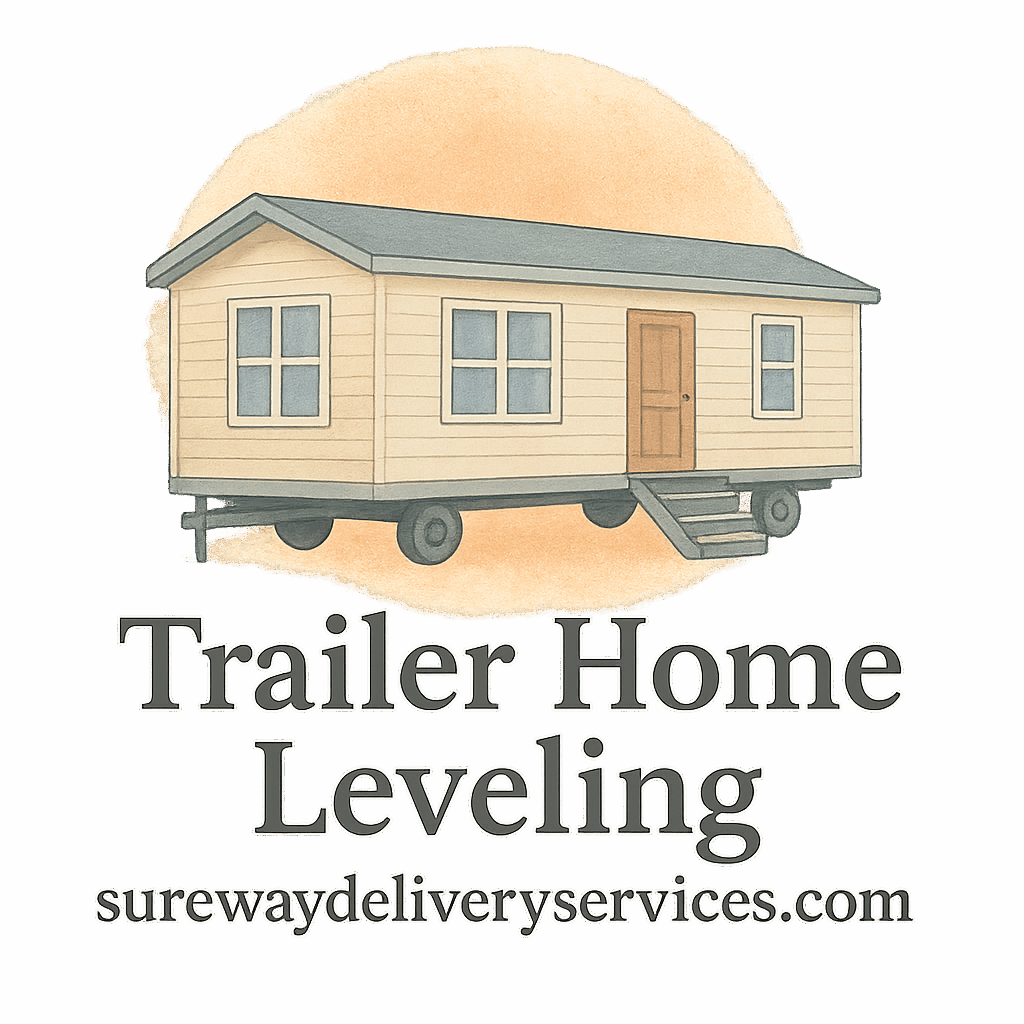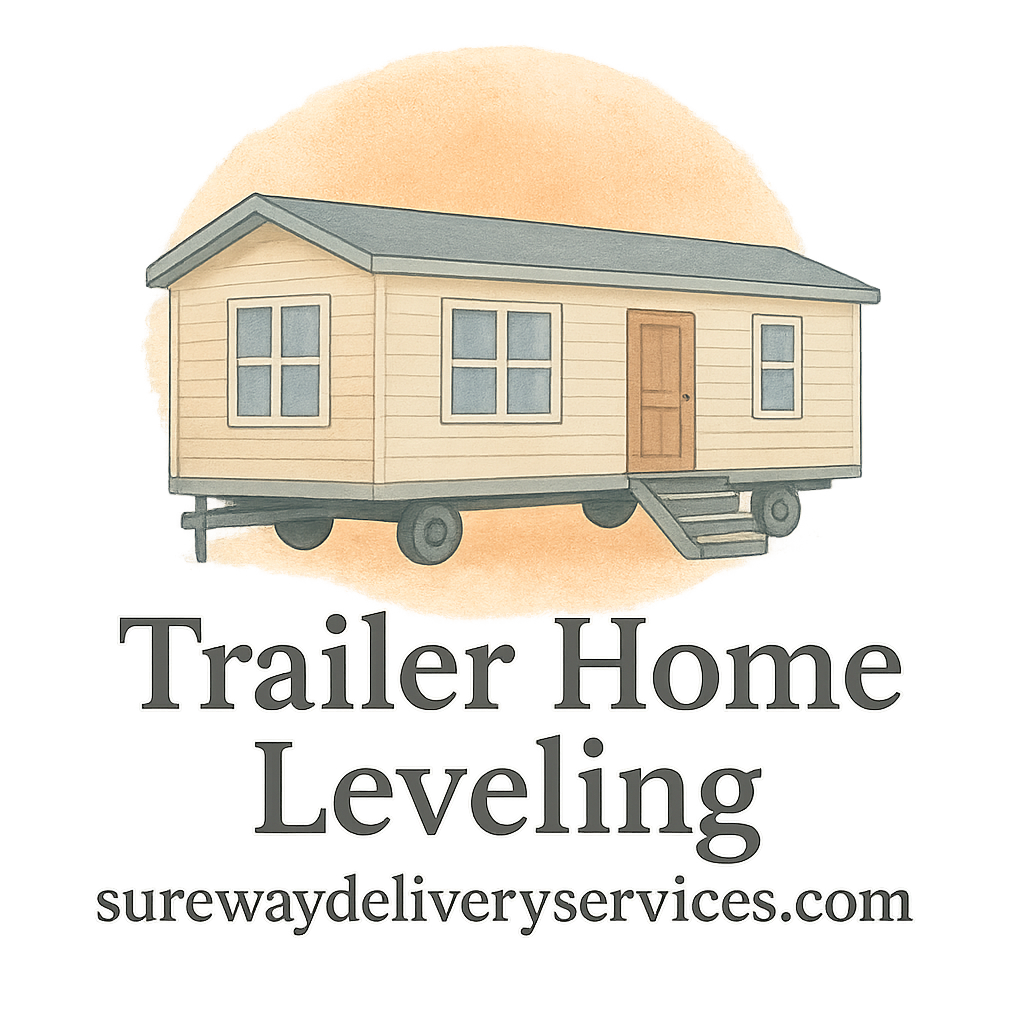Introduction
Is your trailer home feeling a little off-kilter lately? Floors slanting, doors sticking, or just not feeling level underfoot? Don’t worry—you’re not alone. Many trailer homeowners face this challenge, especially after a few years of settling. Luckily, leveling your trailer home doesn’t have to break the bank.
In this guide, I’ll share six tried-and-true affordable trailer home leveling tips for beginners. These are practical, beginner-friendly tricks designed to save you money, stress, and time. Ready to get your mobile home back on level ground? Let’s dive in!
What Is Trailer Home Leveling?
Before we start tossing around jacks and levels, let’s cover the basics.
Why Leveling Is Critical
A level trailer home isn’t just about comfort—it’s about safety and longevity. An unlevel home can damage the structure, plumbing, windows, and more. Left unchecked, it can lead to expensive repairs.
Learn more about the basics of trailer home leveling to understand why this process is non-negotiable.
Common Signs Your Trailer Home Needs Leveling
- Doors and windows don’t close properly
- Cracks in walls or ceilings
- Floors feel slanted or uneven
- Cabinet doors swing open on their own
- Strange noises or creaking when walking
If you’re noticing any of these, it’s time to take action. You can explore more on signs your trailer home is unlevel.
Understanding the Basics Before You Start
Tools You’ll Need for Leveling
You don’t need a garage full of fancy tools to level your trailer. Here are a few budget-friendly essentials:
- Bubble or laser level
- Water level (yes, really!)
- Hydraulic or screw jacks
- Wood shims or blocks
- Safety gloves and goggles
Browse more on essential trailer leveling tools.
Safety Considerations First
Let’s be clear: trailer home leveling involves lifting a structure. That can be dangerous. Always:
- Wear protective gear
- Work with a partner
- Never go under the trailer while it’s lifted
- Use jacks on solid ground only
If you’re unsure about safety, it’s worth reviewing inspection and maintenance safety tips.
Tip #1: Conduct a Thorough Inspection First
Look for Visible Signs
Start by walking around your trailer and inspecting the exterior skirting, foundation piers, and any visible damage. You’ll want to look for gaps, tilting, or misalignment.
Use a Leveling Tool
Place a level tool on the floor inside your trailer in multiple locations. A water level or a long bubble level will help identify which side is sagging.
More on annual inspection checklists can help guide your inspection routine.
Tip #2: Use Affordable Leveling Jacks
Types of Jacks Available
There are various types of jacks you can use:
- Screw jacks
- Scissor jacks
- Hydraulic bottle jacks
Hydraulic jacks are a popular choice for their lifting power and ease of use.
Choosing Budget-Friendly Options
You don’t need to spend a fortune. Many budget trailer leveling kits are available online or at hardware stores. Look for reliable brands that offer good support weight and read customer reviews before purchasing.
Explore more leveling methods here: Trailer Home Leveling Techniques
Tip #3: Go DIY with Simple Leveling Methods
Water Level Technique
This old-school method uses the principle of water finding its own level. It’s super cheap and surprisingly accurate.
- Fill a clear plastic tube with water.
- Hold each end in different parts of your home.
- The water levels will be equal when both sides are level.
Wood Block Leveling Trick
If you’re on a budget, this one’s golden. Use pressure-treated wood blocks stacked under the frame to level your trailer. It’s simple, effective, and affordable.
Just be cautious of moisture or rot—refer to maintenance tips to keep wood blocks in top shape.

Tip #4: Don’t Skip Regular Maintenance
How Often Should You Inspect?
Ideally, you should inspect your trailer’s level at least once a year. More often if you’re in areas with shifting soil or heavy rainfall.
Keep up with an annual maintenance plan to stay ahead of issues.
What to Check During Maintenance
- Condition of jacks and supports
- Soil erosion under supports
- Rust or damage to the chassis
- Interior cracks or shifting
Visit our guide to trailer home maintenance and inspection for a detailed checklist.
Tip #5: Budget Smartly for Leveling Projects
Estimate Before You Start
Before grabbing a jack, sit down and calculate your costs. Here’s what to include:
- Tools or jack rentals
- Blocks or shims
- Safety gear
- Optional: professional help
Check out our cost and budgeting guide to avoid financial surprises.
Avoiding Overcharges
Sadly, some services may overcharge inexperienced trailer homeowners. Read up on common overcharge traps and how to sidestep them.
You can also review typical price tags for trailer leveling jobs to ensure fair estimates.
Tip #6: Know When to Call in the Pros
Affordable Service Packages
There’s no shame in hiring pros when needed. Many companies offer affordable service packages that can save you money compared to DIY gone wrong.
See available trailer service packages.
Checking Reviews Before Hiring
Always check customer recommendations and reviews. It helps you avoid scams and find reliable help.
You can use the trailer home service guide to choose the right professionals.
Final Words: Leveling Doesn’t Have to Be Expensive
You don’t need to spend thousands or become a construction guru to level your trailer home. With the right tools, regular maintenance, and these affordable tips, you’ll keep your trailer home comfortable, safe, and structurally sound—without draining your wallet.
Whether you’re a DIY enthusiast or just learning the ropes, these steps will guide you every inch of the way. And if things get tricky? There’s always a pro ready to lend a hand.
Looking for more beginner guides? Explore the Trailer Home Leveling basics or dive into our curated success stories.
FAQs
1. How often should I level my trailer home?
At least once a year. But if you notice signs like door misalignment or floor tilt, inspect immediately.
2. Can I level a trailer home by myself?
Yes, especially with basic tools like jacks and levels. Just follow safety precautions and start slow.
3. What’s the cheapest way to level a trailer?
Using wood blocks and a bubble level or water level is the most cost-effective DIY method.
4. What if I don’t have a jack?
You can rent one from hardware stores or borrow from friends. Just make sure it supports your trailer’s weight.
5. How much does professional leveling cost?
It varies, but average costs range from $400 to $1,200 depending on size and foundation. Avoid overcharges by reading this pricing guide.
6. Do weather conditions affect trailer leveling?
Absolutely. Wet, loose, or shifting soil can cause settling. Inspect more often in such climates.
7. Where can I learn more about trailer home leveling?
Visit TrailerHomeLeveling.com for in-depth guides, checklists, tips, and expert advice.


